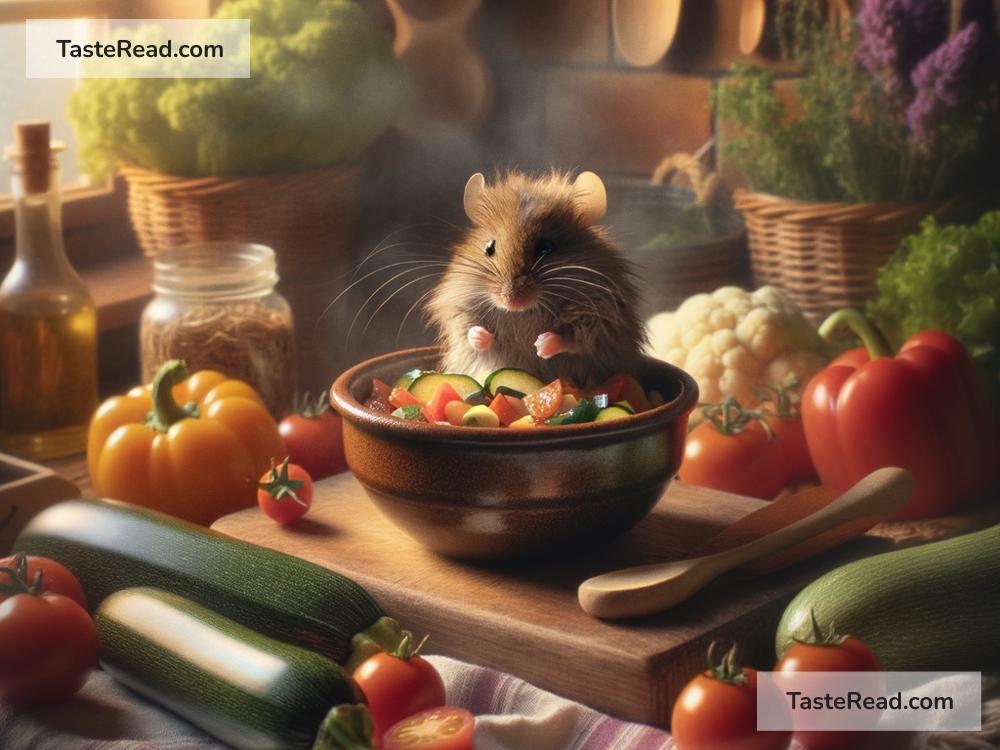The Significance of Remy’s Culinary Creations in Ratatouille
In Pixar’s animated movie Ratatouille, viewers are introduced to Remy, a rat who dreams of becoming a chef. At first glance, the idea of a rat wanting to cook gourmet meals might seem strange. After all, rats are usually seen as creatures that scurry through garbage, not create art on a plate. But as the story unfolds, Remy’s passion for cooking begins to inspire everyone he encounters—even an entire audience watching from home. His journey is not just about food; it’s about creativity, breaking stereotypes, and pursuing your dreams against all odds. In this blog post, we’ll explore how Remy’s culinary creations in Ratatouille hold deep significance, even for those of us who aren’t chefs.
Cooking as an Art Form
One of the most striking ideas presented in Ratatouille is that cooking is not just about following recipes; it’s a legitimate form of art. Remy takes an approach to cooking that goes beyond survival or sustenance—he sees every dish as an opportunity to create something meaningful. When he prepares meals, he doesn’t just throw ingredients together; he thinks carefully about flavors, textures, and appearances. He pushes boundaries, mixes unexpected ingredients, and experiments with new ideas, just like an artist paints or a composer writes music.
This is beautifully illustrated in several scenes, particularly when Remy prepares the title dish, ratatouille, to impress Chef Gusteau’s harshest critic, Anton Ego. Instead of viewing ratatouille as a simple vegetable stew, Remy reimagines it as a layered masterpiece on a plate. The dish doesn’t just look beautiful—it tells a story. For Ego, it becomes a gateway to childhood memories, transporting him back to simpler times. Through his culinary creations, Remy demonstrates how food has the power to touch people’s hearts, evoke emotions, and create lasting memories.
Breaking Stereotypes
Another powerful message in Ratatouille is the idea of defying stereotypes and challenging societal expectations. Remy is a rat, an animal often associated with filth and disease. People would assume that the last place a rat belongs is in a kitchen. Yet Remy refuses to let this perception limit him. He knows he has a gift for cooking, and he doesn’t let the world’s negative opinion of rats stop him from chasing his dream.
This theme of breaking stereotypes isn’t limited to Remy—it extends to other characters as well. Linguini, the young, awkward human sous-chef that Remy secretly guides, doesn’t fit the mold of a typical chef either. He lacks confidence, culinary skill, and authority in the kitchen. But with Remy’s help, he discovers his own value and grows throughout the story. Together, they show that greatness comes in unlikely forms and that anyone can achieve their dreams if they have the courage to try.
The Importance of Collaboration
Remy’s culinary successes in the movie are not achieved on his own. While he is undeniably talented, he relies on teamwork to bring his ideas to life. Remy and Linguini forge an unusual but heartfelt partnership, working together to create incredible dishes. Remy provides the creativity and culinary expertise, while Linguini acts as the human hands to execute their shared vision.
This collaboration emphasizes the importance of teamwork in achieving greatness. It shows that no matter how skilled or passionate you are, there’s often strength in working with others. Success is not just about individual talent—it also involves mutual respect, trust, and collaboration. Even in the chaotic kitchen full of diverse personality types, everyone has a role to play. Remy’s journey highlights how sharing ideas and working together can lead to extraordinary results.
Dreams Have No Limits
One of the main takeaways from Ratatouille is the idea that dreams are universal and should not be confined by labels, fear, or societal expectations. Remy’s journey reminds us that anyone can dream big, regardless of where they come from or what others think of them. Gusteau’s famous saying, “Anyone can cook,” is a guiding principle throughout the movie. It’s not just about cooking—it’s a metaphor for life. It means that greatness is not reserved for a select few. Passion, determination, and hard work can open doors for anyone willing to try.
The film shows us that following your passion might be difficult, but the rewards are worth it. Remy faces countless obstacles—living in secrecy, being chased by humans, balancing his rat instincts with his culinary dreams—but he never gives up. He teaches us that it’s okay to be different and that pursuing what you love is worth the risks.
Food as a Universal Language
Remy’s culinary creations also underline the idea that food has the power to bring people together, regardless of cultural, social, or personal differences. At the end of the movie, Anton Ego writes about how food doesn’t have to be fancy to be incredible—it can be comforting, nostalgic, and emotionally deep. Remy’s cooking bridges gaps and fosters understanding between characters, from Ego to Linguini’s fellow chefs. Even the rats and humans learn to coexist in the restaurant by the end of the film. Food acts as a universal language, connecting beings from different worlds.
Conclusion
Remy’s culinary journey in Ratatouille is more than just a quirky story about a rat who can cook; it’s an inspiring tale with universal lessons about creativity, persistence, teamwork, and challenging stereotypes. His dishes are an expression of his unique soul and a reminder that food is more than fuel—it’s art, emotion, and connection. Remy’s story leaves us believing that anyone can dream big and achieve greatness, even if they start from the unlikeliest of places. In the end, Ratatouille isn’t just about cooking—it’s about celebrating the beauty of following your passion and embracing who you truly are.


